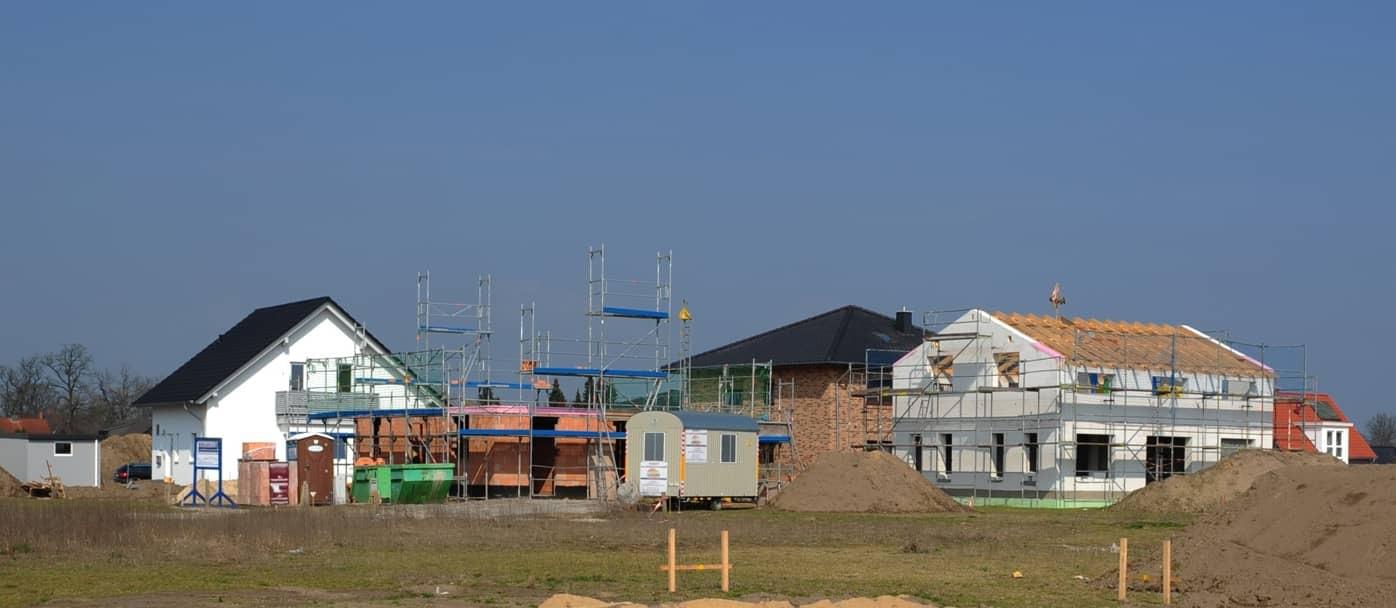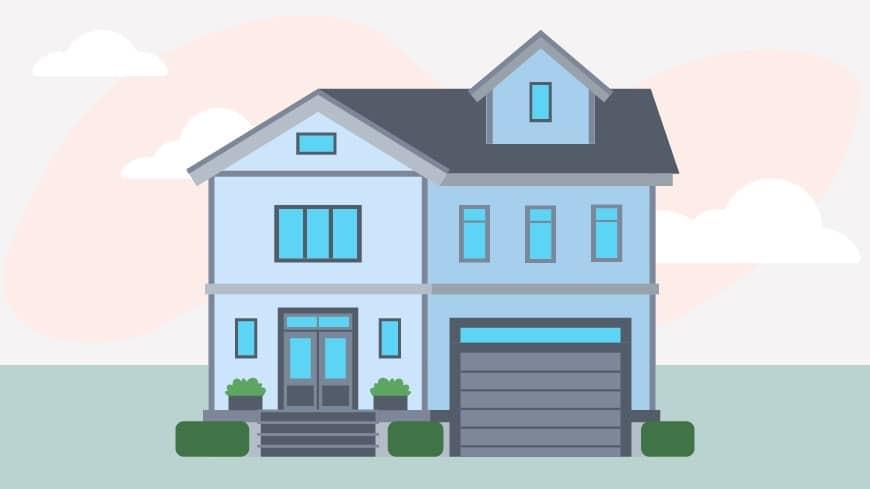What is a land loan?

Finding a home that suits all of your needs might be difficult, and if you’ve got the expertise, you may have considered building your own from scratch.
Despite the high cost of building a house, those with the right know-how are able to pull off these construction projects, often with the help of lenders. While building the structure will certainly come with its own challenges, securing a plot of land can be difficult. Dealing with plumbing, electricity, existing structures and landscaping needs can cost a bundle, but you do have the option to finance those costs with a land loan.
Land loans can be used to finance the purchase of a lot of land and are commonly taken out to build a home or for business purposes.
Is a land loan a mortgage?
Land loans share many similarities with mortgages. Both forms of financing are used to obtain property, which can be foreclosed on if monthly loan payments aren’t met.
Unlike mortgages, however, there is no existing property to be appraised, making it difficult for lenders to determine an appropriate value for the plot of land. To make up for this uncertainty, your lender will likely require a larger down payment and attach a higher interest rate than they would if you were buying an established home.
What are the types of land loans?
Depending on your intentions and specifications, one type of land loan might suit you better than another. Lenders will always take the state of the property into consideration before approving a loan. If there are issues with infrastructure, local ordinances or existing structures that need to be removed, your lender will likely package the land loan differently.
Here’s a look at some of the most common types of land loans:
- Raw land loan
- Improved land loan
- Unimproved land loan (lot land loan)
Raw land loan
If you’re looking to purchase a completely empty plot of land, separate from any roads, electricity or water source, you’ll likely need to take out a raw land loan. Since these empty lots require the largest amount of effort to make usable, raw land loans can be a difficult financing plan to secure.
While comparing prices for tracts of land, you might've noticed empty lots are much cheaper than those on developed sites. This might make undeveloped areas seem like a more affordable option, but financing their purchase usually comes with comparably tougher requirements. Your lender will likely require a higher down payment and interest rate to ensure a successful loan can come from such a large undertaking.
As the borrower, you’ll need a thorough construction plan and detailed budget in place, as well as approval from local government entities for access to public utilities for your raw land loan to be approved. This can help demonstrate your ability to pull off the project and repay the loan on time.
Improved land loan
When the plot of land you’re targeting already has access to public utilities like roads and electricity, you’ll likely apply for an improved land loan. Since this type of land is much more developable than a completely empty plot, the asking price is usually a bit higher. Offsetting this drawback, however, are the comparatively lower interest rate and down payment requirements than you would expect for a raw land loan.
Despite these slightly lower approval thresholds, improved land loans still pose an elevated level of risk for lenders. You’ll still need a solid credit score and detailed construction plan in order to be approved.
Unimproved land loan (lot land loan)
Much like raw land, unimproved land lacks important features such as an electric meter, natural gas meter or other important utilities. However, these sites usually do have some development already in play. If you were to take on an unimproved land loan, your site might have access to roads and some power lines, but not quite enough for the foundation of a home.
Unimproved land loans can be a bit easier to secure than those for raw tracts, but still carry steep requirements from the few lenders that offer them. Your credit score, cash-on-hand and construction plan will all be heavily scrutinized to determine your eligibility.

What are the pros and cons of land loans?
Although building a home from scratch can be an expensive endeavor, many homeowners have benefited from starting their project with a land loan. If you’re still on the fence, it’s a good idea to read up on both the advantages and disadvantages before you decide. Additionally, meeting with multiple lenders could also help determine your borrowing capacity and how much of a loan you can afford.
Let’s look at some of the most significant pros and cons that might impact your decision to apply for a land loan:
Pros of land loans
The most obvious advantage to financing a land purchase is the opportunity to build your own house. With the right experience on your team and a solid budget in place, you can build a home to your exact specifications without having to compromise anything on your checklist.
Additionally, if it is possible to secure access to utilities such as water, sewer, electric or gas service,underdeveloped or raw land generally comes much cheaper than lots with built-in improvements. While the average cost to build a home can be high, the lots themselves can be secured for much less.
Savvy developers who expect home values to rise in a certain area might try to secure a tract via a land loan for future construction.
Cons of land loans
Not all lenders offer land loans*. In fact, many stay away from this type of financing due to the elevated level of risk. Construction on your new plot of land, for example, could easily fall behind schedule thanks to forces beyond your control. Government red tape, clean water access and a subpar electric infrastructure can all lead to unforeseen complications and delay a project’s completion. Because of these potential problems, a lender might prefer financing homes that are already built.
If you are able to secure financing for a land loan, your lender might emphasize the importance of staying on schedule by dictating a short repayment period. A shorter amortization schedule will likely mean much higher monthly payments, since the loan will have to be paid off in a shorter amount of time.
In conclusion
Finding a lender that can issue land loans might be a challenge, but with a strong financial background you’ll be able to finance a land purchase much easier. When you find a lender that can issue a land loan, it’s important to have all future construction plans written out in detail.
Buying a house might present a quicker way to get into a new house, but with a land loan, you’ll be taking the first step toward building the home of your dreams.
*Rate does not provide land loans.




